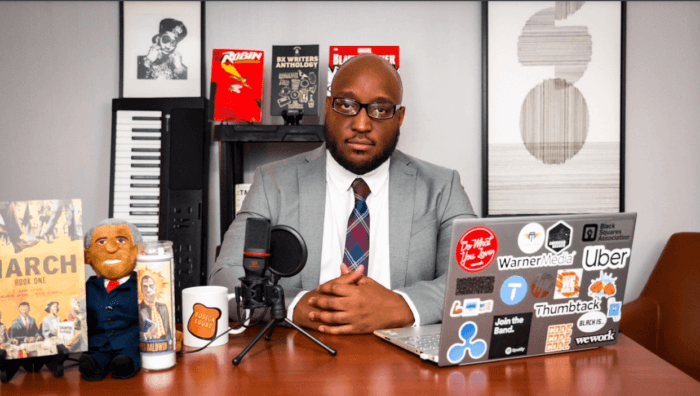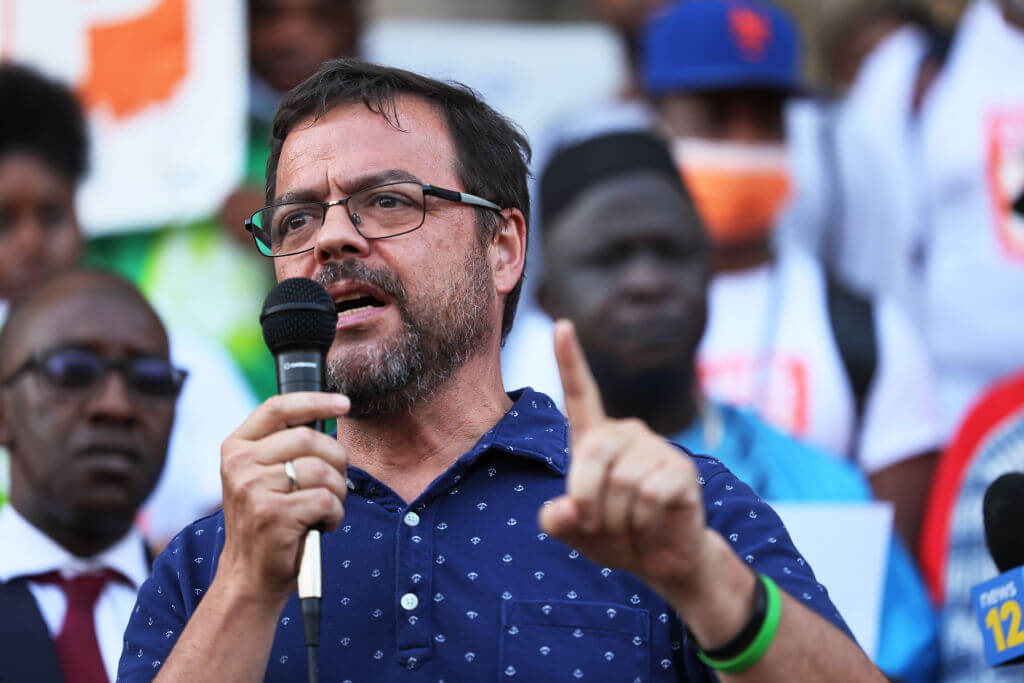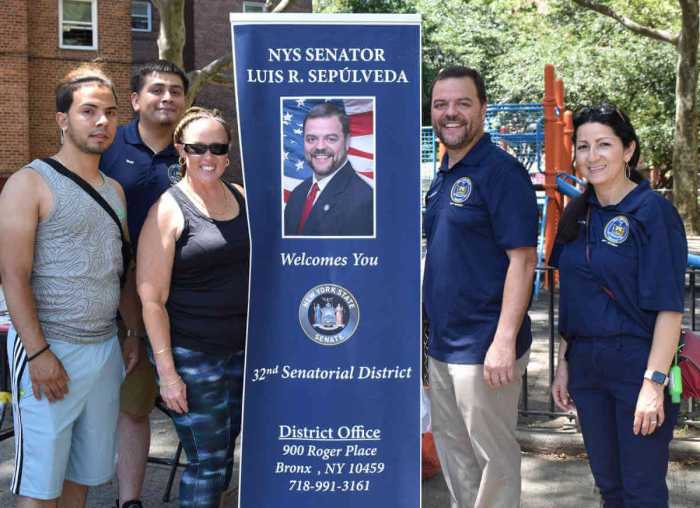State Sen. Luis Sepúlveda, the District 32 incumbent who faces a difficult reelection primary this summer, is hoping for a better 2022.
Last January, the three-term senator was stripped of committee assignments after being charged in January 2021 for a domestic assault for choking his estranged wife, Elizabeth Sepúlveda. But she refused to testify leading prosecutors to drop the case in October, according to the Office of the Bronx District Attorney.
However, with the backing of the Bronx Democratic Party and potential reinstatement as chair of the powerful state Senate Committee on Crime Victims, Crime and Correction, Sepúlveda is hoping that voters instead focus on his record as a lawmaker and community leader.
The party’s democratic leadership declined to speak with the Bronx Times about backing Sepúlveda this election cycle.
“The Jan. incident is closed,” Sepúlveda, 57, told the Bronx Times. “I am focusing on my family and the work I need to do for my constituents. I am hopeful that people will focus on my progressive record and the work my staff and I do for the community, especially during this pandemic.”
But for voters of New York’s 32nd Senate District — the south and central Bronx locale that includes the neighborhoods of Parkchester, Soundview, Mott Haven and Hunts Point, among others — that’s easier said than done.
“I don’t believe in second chances for someone who assaults a person, much less their wife,” said Angelica Ramirez, a Parkchester native. “If you’re going to represent my district, my neighborhood, I need to know you’re a good person.”
If voters aren’t as forgiving of Sepúlveda’s professional and personal nadir as his party is — the Progressive has denied any wrongdoing and his legal consul states that he’s exonerated — it could provide an opportunity for Sepúlveda’s Democratic primary challenger Ian Harris, a Methodist pastor entering into the political arena for the first time as a progressive grassroots leader.

“I believe that voters should use their voice — afforded to them in the form of a ballot — to speak to the issues that they face. I’d imagine that they want to elect someone who will position themselves to be a conduit between the resources and the community that they serve,” said Harris, who announced his candidacy last year. “There have been some tremendous accomplishments from past and current elected officials and some moments that haven’t been as great. The conversations that I’ve had with my neighbors have informed me that they want more of the former and less of the latter. I’m aligned with them. So much so that I desire to be the person who delivers just that. ”
Sepúlveda and Harris, 35, have walked two divergent paths to get to the same goal: Improving quality of life for a district that has some of the worst graduation rates in the state and the highest rates of homelessness in sections like Soundview.
Sepúlveda, who received a reported $57,337 in campaign contributions in 2021, according to campaign finance tracker Follow the Money NYC, champions himself as a community-based senator who gave out more than 200,000 face masks and hundreds of gallons of hand sanitizers during the peaks of the COVID-19 pandemic and believes he can do more to improve the district’s education, health and economic development if granted a fourth term.
“During my entire political career, I have never taken reelection for granted,” Sepúlveda, a former member of the state Assembly who also made an unsuccessful bid for Bronx beep in last year’s Democratic primary. “My office has the busiest constituent service office in the entire State of New York. While many of my colleagues get 10-20 constituent visits per week, my office services well over 30-50 constituents per day. Those numbers are high because we have a high needs community.”
Harris, who uses his experience as a 15-year software tech to solve problems, wants to center food insecurity — an issue that plagues various sections of the Bronx — at the heart of his campaign.
“I know what it’s like to be hungry. Being “working poor” is real — having employment that doesn’t allow you to satisfy all your financial obligations — is something that I can speak to and allows me to understand, firsthand, the importance of earning a livable wage,” Harris said. “Whether it was sleeping on subways, friends’ couches, and/or showering at my gym, these experiences guide my efforts in ensuring that the looming eviction crisis does not add to the crippling impact families have felt from the pandemic. ”
Both Progressives in the race don’t differ on much when it comes to policies. Both believe housing is a human right, both want streets to be safe without surrendering constituent’s rights to police and both have done substantive, on-the-ground work in the district.
Sepúlveda, along with area providers Urban Health Plan, BronxDocs and Essen Health, created an in-house program that increased vaccination efforts in one of the borough’s least-vaccinated areas, the South Bronx. He said that effort allowed 2,750 residents to get inoculated. Harris facilitated food distributions and connected community food programs — who have seen their ability to support their neighbors shrink considerably after the USDA discontinued the “Farmers to Families” program — to the Nourish Act, one of his efforts to combat food instability in his borough.
“Lip service does nothing when people need results. It is my belief that I’m a results-driven individual. I’d love to convey the promise that character will translate to the state Senate,” Harris said. “However, I’d rather not spend too much time articulating that — as it takes away from putting in the actual work. I’m working now, have put in work in the past, and hope that I’m elected so that I can work on an even broader scale for our community.”
For a diverse district that includes Bronxites spanning places like Bangladesh, West Africa, Dominican Republic, Mexico, Puerto Rico, what ultimately will tip the scales come June? The incumbent hopes voters will judge his three-term tenure in the Senate with fairness, despite hiccups that plagued him in 2021.
“Many elected officials have grown overconfident and it has cost them. Look at what happened in the past election to the leader of the New Jersey Senate,” he said referencing the upset of former New Jersey Senate President Stephen Sweeney who lost to virtually unknown Republican Ed Durr. “If I were not to be reelected, it would not be because of hard work or overconfidence.”
Members of the state Senate are elected to two-year terms and command an annual salary of $110,000 a year, plus per diem.
Reach Robbie Sequeira at rsequeira@schnepsmedia.com or (718) 260-4599. For more coverage, follow us on Twitter, Facebook and Instagram @bronxtimes.
























